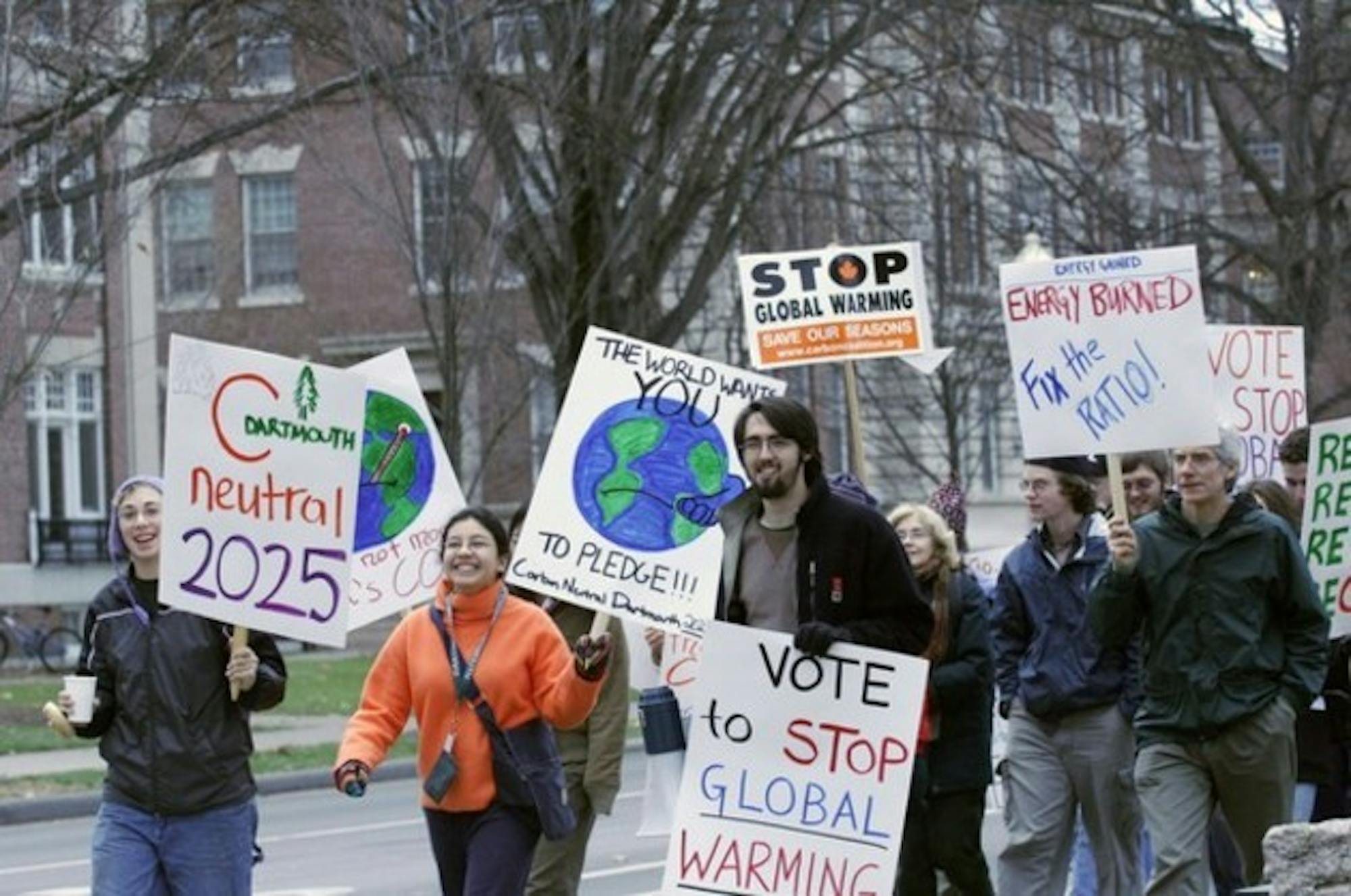The event aimed to educate and encourage people to use energy more efficiently and to involve Dartmouth in the Campus Climate Challenge, according to Marissa Knodel '09, the rally's organizer and co-leader of the event's sponsor, Sustainable Dartmouth.
"Global warming is a very serious issue and if we don't act now, the consequence are going to be very serious," Knodel said.
Although the rally's 30-person turnout disappointed many participants, some said they found it encouraging that people from the surrounding community attended.
"It's really nice to know that there are adults and people in the community and also high school students who are concerned about Dartmouth's policy as well," rally participant Yiron Gu '09 said.
The CCC is a project sponsored by the Energy Action Coalition, which consists of 30 youth organizations from the United States and Canada.
It aims to bring students together on college campuses and high schools to achieve clean energy policies at schools throughout North America.
Participating schools in the CCC hope to reduce all campus carbon emissions by 80 percent by 2050. Sustainable Dartmouth's goal is for the College to be "carbon neutral" by 2025.
To become carbon neutral Dartmouth will have to neutralize the effect of the greenhouse gas emissions it produces. This can be done by both reducing carbon emissions and by "offsetting" these emissions, which means increasing carbon dioxide absorption.
"Although global warming is an international issue, it affects everyone at local levels as well," Knodel said. "There are solutions that are in place to deal with the consequences of global warming, but what is really lacking is political will, and as students we have a lot of influence and pressure that we can exert on politicians and the administration to implement some of those solutions."
Students signed a petition after the rally in the hope of convincing the administration to adopt a carbon reduction plan.
"The signatures are to show the amount of support we have for this cause. We want to make sure we have the student body behind us before we go to the administration and submit the proposal for carbon neutrality," Knodel said.
Middlebury has committed to become carbon neutral by 2015, and Yale has pledged to reduce its emissions to 10 percent below 1990 levels by 2020.
In contrast, Dartmouth's carbon dioxide levels have increased by almost 52 percent since 1990, and there is currently no active plan to drastically reduce on-campus carbon production levels.
"I am really excited to see that we are getting started [reducing carbon emissions at Dartmouth], but I would like to see the process move a little faster," Kristina Gebhard '09 said.
Sustainability manager Jim Merkel said that although the campus has become more efficient in recent years, it has also added square footage.
"What is happening is that since we are still growing, our growth is outpacing our efficiency," Merkel said. "I think we should work toward carbon neutrality. We should talk about a date with students and the community and have a team that is researching and then deciding on a date that we can commit to."




